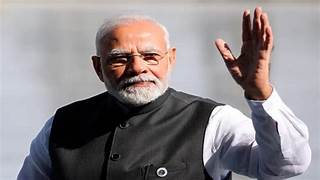Prime Minister Narendra Modi has slammed the state governments in Delhi and Bengal over the implementation of the Centre’s Ayushman Bharat scheme, saying these two establishments were not letting the benefits of the central schemes to reach their people and were hell-bent to oppose anything that he does.
“The tendency to oppress the sick people of your own state for your political interests is against any humane attitude and hence I apologize to the elderly people of West Bengal, I apologize to the elderly people of Delhi, I can serve the people of the country, but the walls of the political profession are preventing me from serving the elderly people of Delhi, and West Bengal,” he said while addressing a function.
The PM also apologized the people, saying that it was not his fault as he cannot do much for them unless the state governments join the central health scheme.
“I apologies to all the elderly people above 70 years of age in Delhi and all the elderly people above 70 years of age in West Bengal that I will not be able to serve you,” Modi was quoted as saying.
The PM has extended his government’s flagship health insurance scheme, Ayushman Bharat, to all senior citizens aged 70 years and above.
Modi also highlighted health initiatives taken by his government, including the establishment of 14,000 Jan Aushadhi Kendras, providing affordable medicines that could otherwise cost citizens Rs 30,000 crore.
The Prime Minister also underscored how Mission Indradhanush, which has been crucial in protecting pregnant women and new-borns from severe illnesses through its immunization programmer, was working effectively, and the launch of over 2 lakh ‘Ayushman Arogya Mandirs’ for timely diagnoses of cancer and other critical diseases.
Modi noted that India currently has 1.08 lakh medical seats, with plans to add 75,000 more to address the healthcare demand.
